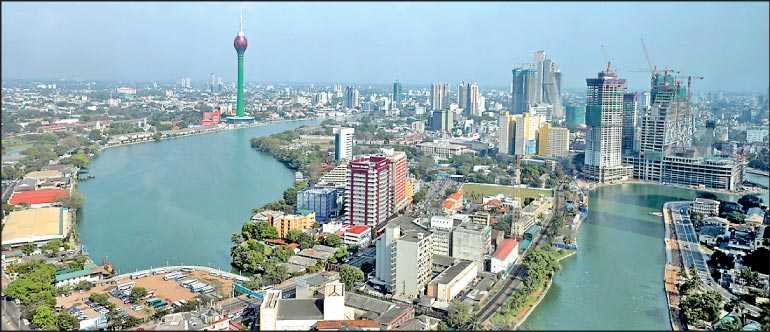Monday Feb 23, 2026
Monday Feb 23, 2026
Wednesday, 6 May 2020 02:31 - - {{hitsCtrl.values.hits}}

Hit by the Easter Sunday attacks and political uncertainty, Sri Lanka performed dismally in attracting Foreign Direct Investments (FDI) last year attracting only $ 1.2 billion, according to the Central Bank Annual Report.
The latest report, which was released last week said FDI inflows, which include foreign borrowings of companies registered with the Board of investment (BOI), declined significantly in 2019.
“Total FDI inflows, including foreign loans received by BOI companies, amounted to $ 1,204 million in 2019. FDI inflows in 2019 were less than the inflows of $ 2,139 million in 2018 ($ 1,457 million excluding the Hambantota port proceeds received by the Government) and $ 1,910 million in 2017,” the report said. The moderation in FDI inflows could be primarily attributed to the weakened investor sentiments with increased uncertainties in the aftermath of the Easter Sunday attacks and political developments, the report went onto say.
FDI inflows, excluding foreign loans to BOI companies, which amounted to $ 758 million, comprised $ 374 million of net intercompany debt, $ 264 million of reinvested earnings and $ 120 million of net investments in equity during the year 2019.
In comparison, FDI, excluding foreign loans obtained by BOI companies, amounted to
$ 1,614 million in 2018.
A notable reduction in equity and intercompany borrowings was recorded in 2019 compared to the previous year. However, there was a healthy level of reinvested earnings from a few large publicly listed FDI companies.
On a sectorial basis, major FDIs were received by projects related to port infrastructure, property development and hotels and to the telecommunications sector.
Based on the origin of the immediate investor, India, Singapore, Canada, Hong Kong and China were the top five source countries of FDI in 2019. Despite some moderation in FDI inflows in the near term, it is expected that the Hambantota industrial zone, the Colombo Port City, the hotel sector and mixed development sector will attract significant inflows in the coming years, it added.
The telecommunications sector is also expected to receive notable FDI flows, primarily targeting the Information and Communication Technology (ICT) sector.
It is also expected that the implementation of the Strategic Project Development Act (SPDA) as well as the recent revisions to the tax structure will also provide impetus to attract FDIs.
“However, persistent issues such as relatively low ranking in the Doing Business Index, high wage rates and utility costs compared to regional peers, high costs of land acquisition, rigidity in labour laws and Government procedures remain the main impediments in terms of attracting FDIs to the country,” the report said.